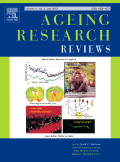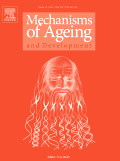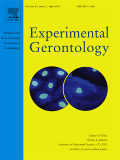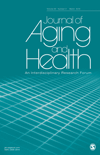
JOURNALS OF GERONTOLOGY SERIES A-BIOLOGICAL SCIENCES AND MEDICAL SCIENCES
Scope & Guideline
Leading the Way in Gerontological Research and Practice
Introduction
Aims and Scopes
- Biological Mechanisms of Aging:
Research that investigates the fundamental biological processes underlying aging, including cellular senescence, mitochondrial dysfunction, and the role of genetic factors in aging. - Age-Related Diseases:
Studies focused on the epidemiology, pathophysiology, and treatment of diseases that predominantly affect older adults, such as Alzheimer's disease, cardiovascular diseases, and frailty. - Interventions to Promote Healthy Aging:
Research on various interventions, including pharmacological treatments, lifestyle modifications, and nutritional approaches aimed at improving health outcomes and quality of life in older adults. - Socioeconomic and Environmental Influences:
Exploration of how socioeconomic status, social determinants of health, and environmental factors impact aging and health disparities among older populations. - Clinical and Translational Gerontology:
Studies that bridge laboratory findings with clinical applications, focusing on the translation of research into practice to enhance geriatric care. - Technological Innovations in Aging Research:
Research involving the application of new technologies, including wearable devices and machine learning, to monitor, assess, and enhance the health and wellbeing of older adults.
Trending and Emerging
- Geroscience and Longevity Research:
An increasing number of studies are addressing the intersection of aging and longevity, exploring biological pathways that contribute to lifespan extension and healthspan improvement. - Multimorbidity and Frailty:
Research on the complex interplay between multiple chronic conditions and frailty is gaining prominence, reflecting a growing recognition of the challenges faced by older adults with multiple health issues. - Digital Health and Telemedicine:
The rise of digital health technologies and telemedicine has become a focal point, especially in light of the COVID-19 pandemic, as researchers explore their potential to improve access to care and health outcomes for older adults. - Social Determinants of Health:
There is a trend toward investigating how social factors, including socioeconomic status, social networks, and community resources, influence health outcomes in aging populations. - Inflammation and Aging:
Research into the role of chronic inflammation as a driver of aging and age-related diseases is becoming increasingly prominent, with studies focusing on biomarkers and interventions to mitigate inflammatory responses. - Gut Microbiome and Aging:
The role of the gut microbiome in aging and its influence on health outcomes is an emerging area of interest, with studies investigating how microbiota composition affects various physiological and cognitive functions.
Declining or Waning
- Traditional Pharmacological Approaches:
There appears to be a decreasing emphasis on conventional pharmacological interventions for age-related diseases, possibly due to a growing interest in lifestyle and holistic approaches to aging. - Invasive Surgical Interventions:
Research focusing on invasive surgical procedures for elderly patients has become less prevalent, as the field shifts towards non-invasive techniques and comprehensive geriatric assessments. - Single-Factor Studies:
There is a noticeable reduction in studies examining the effects of single factors (e.g., specific nutrients or medications) on aging, as research increasingly favors multifactorial approaches that consider the interactions between various biological and environmental variables. - Animal Models of Aging:
While animal studies remain important, there appears to be a decline in the focus on traditional rodent models, with a shift towards more complex models that better mimic human aging processes. - Basic Research Without Clinical Application:
Publications focused solely on basic biological research without clear clinical implications have diminished, as the journal emphasizes translational research with direct relevance to geriatric health.
Similar Journals

EXPERIMENTAL AGING RESEARCH
Transforming Understanding of the Aging JourneyEXPERIMENTAL AGING RESEARCH, published by Taylor & Francis Inc., is a leading journal that has been at the forefront of aging research since its inception in 1975. With an ISSN of 0361-073X and an E-ISSN of 1096-4657, this journal has earned a notable reputation, including a Q3 ranking in the field of Aging and impressive Q1 and Q2 rankings in Arts and Humanities and Geriatrics and Gerontology respectively. This positions the journal within the top percentile of its category, highlighting its significant impact and contribution to the scientific community. Covering a broad scope that intersects various disciplines, EXPERIMENTAL AGING RESEARCH aims to disseminate pioneering research, foster interdisciplinary collaboration, and provide a platform for innovative studies that enhance understanding of the aging process. While it currently does not offer Open Access, researchers and academics can access its rich repository of knowledge that spans multiple facets of aging, from physiological changes to psychological impacts. As the field of aging continues to evolve, this journal remains an essential resource for researchers, professionals, and students dedicated to advancing knowledge and practices concerning aging and longevity.

Aging-US
Elevating Conversations in Aging and Cell BiologyAging-US is a premier peer-reviewed journal dedicated to advancing the field of aging research and cell biology. Published by IMPACT JOURNALS LLC, this journal serves as a vital resource for researchers and professionals exploring the biological mechanisms of aging and their implications for health and disease. With a commendable impact factor reflected in its 2023 Scopus rankings, where it stands at Rank #10/38 in the category of Aging and Rank #63/285 in Cell Biology, Aging-US exemplifies rigorous scientific excellence. Its open access policy enhances accessibility, fostering a wider dissemination of knowledge in both academic and clinical settings. Spanning from 2009 to 2024, the journal provides a platform for groundbreaking studies and innovative methodologies, ensuring that it remains at the forefront of the dynamic conversations surrounding aging and cellular biology. Engage with Aging-US to contribute to the evolving narratives of longevity and cellular health.

Frontiers in Aging
Pioneering Insights into the Aging ProcessFrontiers in Aging is a leading academic journal published by FRONTIERS MEDIA SA, dedicated to advancing the understanding of the biological processes associated with aging. Established in 2020, this open-access journal aims to bridge the gap between various disciplines including genetics, molecular biology, and physiology, providing a multidisciplinary platform for researchers and clinicians alike. With a notable impact factor denoted by its Q2 quartile rankings in Aging, Genetics, and Molecular Biology, and a Q1 ranking in Physiology as of 2023, the journal is recognized for its contribution to the scientific community. Located in Lausanne, Switzerland, it is committed to promoting open discourse and publishing cutting-edge studies that address the complexities of aging and its implications for health and longevity. The journal’s editorial board, consisting of leading experts, ensures the rigorous peer-review process, maintaining high academic standards and fostering innovation in aging research.

AGEING RESEARCH REVIEWS
Pioneering Knowledge for Healthier FuturesAGEING RESEARCH REVIEWS, published by Elsevier Ireland Ltd, is a prestigious academic journal dedicated to advancing our understanding of the biological, psychological, and societal aspects of aging. With an ISSN of 1568-1637 and E-ISSN of 1872-9649, this journal has established itself as a leading resource in the fields of Aging, Biochemistry, Biotechnology, Molecular Biology, and Neurology, consistently ranked in the Q1 category across these disciplines as of 2023. For researchers, students, and professionals eager to explore cutting-edge findings and innovative methodologies, AGEING RESEARCH REVIEWS gathers comprehensive reviews that facilitate a deeper understanding of age-related processes. Its high impact factor and exceptional Scopus rankings—ranking #1 in Aging and #3 in Neurology—underscore its critical role in shaping contemporary aging research. This journal not only serves as a vital reference point but also fosters a collaborative space for the scientific community focused on improving health outcomes across the life span. Published continuously since 2002 and with a converging focus through 2024, AGEING RESEARCH REVIEWS remains committed to disseminating impactful knowledge that drives progress in our understanding of the aging process.

MECHANISMS OF AGEING AND DEVELOPMENT
Illuminating Mechanisms That Shape Our LivesMECHANISMS OF AGEING AND DEVELOPMENT is a premier academic journal published by Elsevier Ireland Ltd, specializing in the fields of aging and developmental biology. With an impressive Q1 ranking in both categories as of 2023, this journal serves as a vital platform for researchers, professionals, and students seeking to advance their understanding of the complex biological processes that underlie aging and development. Since its inception in 1972, the journal has steadily contributed to the accumulation of valuable knowledge, maintaining a history of rigorous peer-reviewed articles that explore genetic, molecular, and cellular mechanisms impacting aging and development. Its high Scopus rankings—notably 5th in Aging and 8th in Developmental Biology—underscore its significance in the scientific community. While the journal follows a traditional publishing route without Open Access options, it remains an indispensable resource for those dedicated to the investigation of life’s aging processes and developmental phenomena. With publication projected through to 2024, the MECHANISMS OF AGEING AND DEVELOPMENT continues to shape the discourse within these critical research domains.

EXPERIMENTAL GERONTOLOGY
Unlocking the Secrets of Healthy Aging Through InnovationEXPERIMENTAL GERONTOLOGY is a prestigious journal published by PERGAMON-ELSEVIER SCIENCE LTD, dedicated to the evolving field of aging research. With a rich history dating back to 1964 and continuing through 2024, this journal aims to advance the understanding of the biological processes underlying aging and develop interdisciplinary approaches to improve healthspan. ENCOMPASSING a broad scope, including *biochemistry*, *cell biology*, *endocrinology*, *genetics*, and *molecular biology*, it holds impressive rankings in the 2023 Scopus Ranks, featuring in Q1 and Q2 quartiles across multiple categories. This positions it as a vital resource for researchers and professionals focused on gerontology and related fields. As a subscription-based journal without open access, EXPERIMENTAL GERONTOLOGY ensures the dissemination of high-quality research through rigorous peer review, making it an essential publication for those aspiring to remain at the forefront of aging studies.

GERONTOLOGY
Exploring the Intersections of GerontologyGERONTOLOGY, published by KARGER in Switzerland, is a prominent journal dedicated to the study and understanding of aging, with a keen focus on the interdisciplinary aspects of geriatric medicine and gerontology. Established in 1957, it has provided a platform for cutting-edge research that covers a wide range of topics including, but not limited to, the biological, psychological, and sociological aspects of aging. With an impressive ranking that places it in the Q3 category for Aging and Q2 for Geriatrics and Gerontology as of 2023, the journal continues to attract high-quality submissions from researchers worldwide, evidenced by its Scopus rankings, which position it favorably within relevant fields. While it operates under a subscription model, the journal remains committed to advancing knowledge that informs practice and policy within an aging society. By fostering innovative studies and discussions, GERONTOLOGY serves as an essential resource for researchers, health professionals, and students alike, dedicated to the care and understanding of older adults.

Aging Medicine
Advancing Insights for a Healthier Aging PopulationAging Medicine, published by Wiley, is a pivotal open-access journal that has been at the forefront of research dedicated to the aging population since its inception in 2018. With a focus on both geriatric care and gerontology, the journal serves as a crucial resource for researchers, healthcare professionals, and students interested in understanding the complexities of aging and the related medical challenges. Although it holds a Q3 quartile ranking in the fields of Aging and Geriatrics and Gerontology according to the 2023 metrics, the journal continues to effectively disseminate valuable research and insights, helping to bridge gaps in knowledge and practice. With an E-ISSN of 2475-0360, it offers an open-access model that ensures broader accessibility to its published content, thus promoting collaboration and innovation across disciplines. As the journal converges towards 2024, it remains committed to evolving with the dynamics of aging research, making it a significant platform for the exchange of ideas and advancements in this essential field.

JOURNAL OF AGING AND HEALTH
Connecting research and policy for aging excellence.The JOURNAL OF AGING AND HEALTH, published by SAGE PUBLICATIONS INC, is a preeminent peer-reviewed journal dedicated to advancing research in the field of gerontology and related disciplines. With an impressive impact factor and ranked Q1 across multiple categories including Community and Home Care, Geriatrics and Gerontology, and Health (Social Science), this journal has established itself as a vital resource for academics, clinicians, and policymakers alike. Spanning over three decades of publication from 1989 to 2024, it serves as a platform for innovative research and multifaceted discussions on aging, health, and the interplay of social factors influencing the elderly population. The journal's rigorous standards for publication ensure high-quality contributions that are impactful and relevant, making it an essential read for those dedicated to improving the health and quality of life for older adults. Although it is not an open-access journal, it provides comprehensive insights that are critical to understanding the complexities of aging in today's society.

CANADIAN JOURNAL ON AGING-REVUE CANADIENNE DU VIEILLISSEMENT
Pioneering research that transforms our understanding of aging.Canadian Journal on Aging - Revue Canadienne du Vieillissement is a leading journal published by Cambridge University Press, dedicated to advancing the empirical understanding of aging and its multifaceted impacts on individuals and society. As a vital resource in its field since 1982 and continuing through 2024, this journal fosters discourse among researchers, practitioners, and policymakers with a keen interest in the demographics, health, and societal aspects of aging. It holds a distinguished position in the academic landscape, earning a Q1 ranking in Community and Home Care and Q2 rankings in Geriatrics & Gerontology, Gerontology, and Health (Social Science) as of 2023. Articles are rigorously peer-reviewed to uphold the highest academic standards, ensuring impactful contributions to aging studies. While the journal does not currently offer open access, it serves as an essential platform for sharing innovative research findings that shape the future of elder care and gerontological practice. With a focus on both Canadian contexts and broader international perspectives, the Canadian Journal on Aging provides critical insights that empower professionals and inspire future generations of scholars.